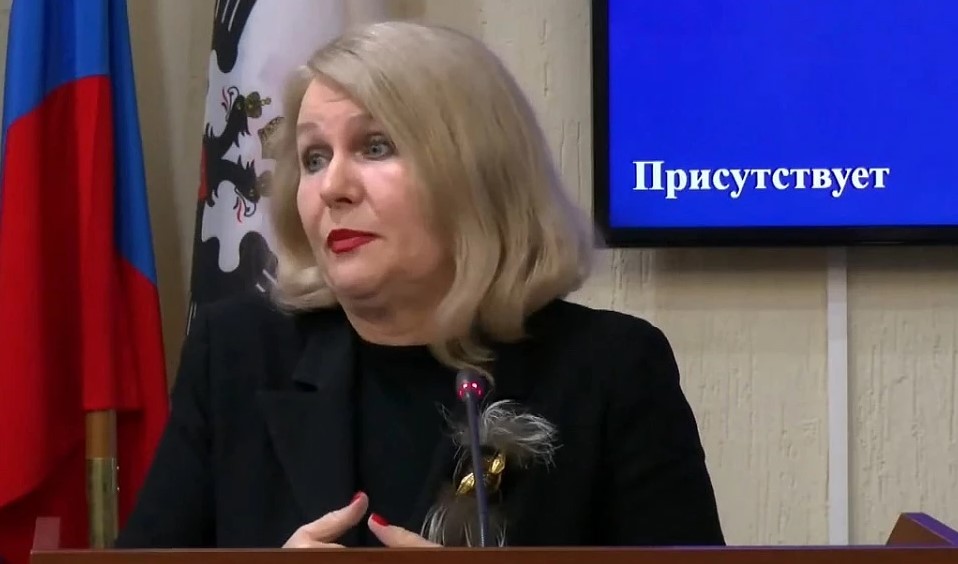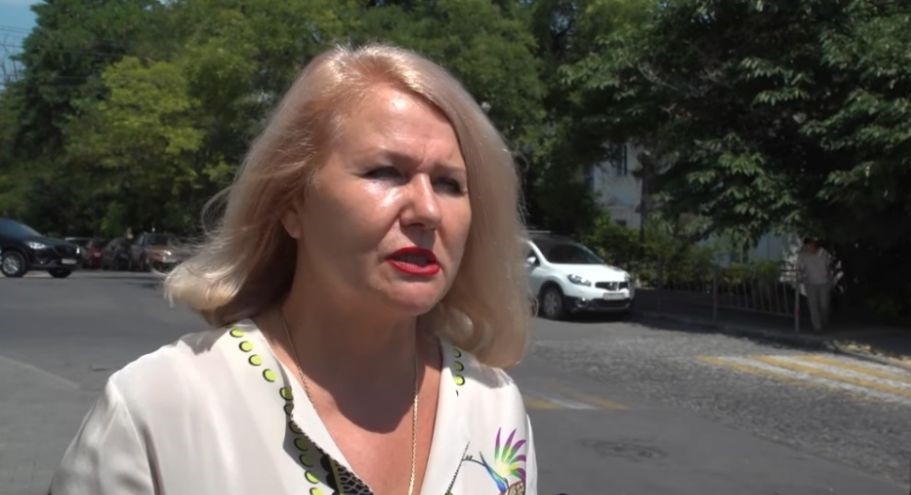As the aggressor-controlled “media” stated at the end of October, they “suddenly discovered” that since July 2024 the Sochi police have been officially searching for the former deputy mayor Irina Romanets, who managed to “mark her mark” on the occupied peninsula.
The fact is that back in 2018, the aggressor’s punishers began a massive “cleansing” of the Sochi administration for “new faces”, and only five deputy mayors were arrested, not to mention a dozen lesser officials.
It was then that Romanets’ colleague in the deputy mayor of Sochi, Evgeny Gorlov, whom we have described many times, “transferred” from Sochi to Sevastopol to wait out the troubles.
Having sat in a lucrative Sochi chair for a whole decade before this purge, Romanets also resigned from Sochi and “surfaced” in occupied Crimea, first as “chief of staff” and “deputy mayor” of Yalta, and then as the head of the “department of culture” in Sevastopol.
Obviously, both Gorlov and Romanets synchronously “woke up in Crimea” not on their own initiative, since such a simultaneous “managerial resource” was available only to their Kremlin curators from the presidential administration of the aggressor.
We have repeatedly described the subsequent behind-the-scenes struggle of the Sevastopol Gauleiter with Gorlov, who was obviously imposed on him, the apogee of which was the Sevastopol detention this summer of the “vice-governor” for a bribe, moreover, from “Sevastopolgaz”, allegedly “connected with the Ukrainian oligarch Firtash” and then “nationalized”, as part of a whole special operation of the occupiers.
But Razvozhaev parted ways with Romanets a long time ago and almost “amicably”, at the end of 2022 she “left of her own free will” to work in Moscow, with a “letter” from the “Sevastopol government”, after which Gauleiter “Kolobok” quickly “transferred” his Krasnoyarsk protégé, Anzhela Sumakova, to her place.
However, both Gorlov’s arrest and the search for Romanets are “achievements” clearly not of the “city” level of the “Sevastopol governor”, they obviously reflect the ongoing confrontation between the groups of the presidential office of the aggressor, from which the Kremlin’s special services are “feverish”, where Razvozhaev has become one of the “combat serfs”.
Therefore, the “nationalization” of “Sevastopolgaz” is considered here only as one of the consequences of this confrontation, the implementation of which was entrusted to Razvozhaev’s team, and the described “Sevastopol-Sochi case” is still very far from the end.









